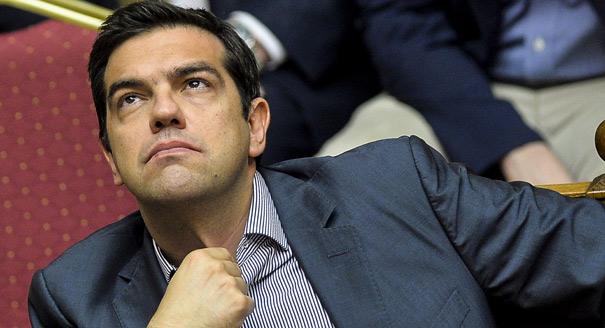After almost seventeen hours of negotiations, on July 13 eurozone leaders struck a deal to offer Greece a third bailout package. Brokered by German Chancellor Angela Merkel, French President François Hollande, and European Council President Donald Tusk, the agreement seems to suggest that Germany’s game plan has worked—so far.
For weeks, Greek Prime Minister Alexis Tsipras had built his strategy on the belief that Grexit was not an option because Brussels, Berlin, and other EU capitals would be too afraid of the consequences. He thought that his negotiating position was much stronger than that of the rest of the eurozone. Getting fresh money from Greece’s international creditors without serious conditions being attached seemed possible.
In the great eurozone poker game, Merkel has won—at least the current round. She demonstrated leadership by moving Greece to agree to a deal that indeed makes sense, for two reasons: First, if Greece complies to the conditions set, the Greek state will likely be in better shape than it is now, as will its economy. Second, the deal with its tough conditions is likely to be acceptable to those who will have to finance it, namely the taxpayers in the other eurozone countries.
The best-case scenario for the weeks and months ahead would be for Tsipras to start to play ball by transforming himself into the domestic leader of reform, pushing hard against privileged groups and building capable state institutions.
Reform is a tough business, as Central and Eastern Europeans know—probably better than Western Europeans, given Central and Eastern Europe’s recent history of transformation. Reform is divisive as it implies a power struggle among elites. Those who have managed to make the state work on behalf their private interests won’t easily give up on their privileges. That can be seen today in Ukraine, where oligarchs are determined to cling to their special interests despite Kiev’s efforts at reform.
But reforms can succeed, as they have in many Central European countries in recent decades. For Greece to transform, the Greek government must start to see Brussels, Paris, and Berlin not as enemies but as partners for change. Tsipras now must step up and lead his country out of its current mess. The latest agreement with Brussels may become a first stride along that road. Otherwise, the deal may become just another step on the long and painful path toward Grexit.


.jpg)
.jpg)


